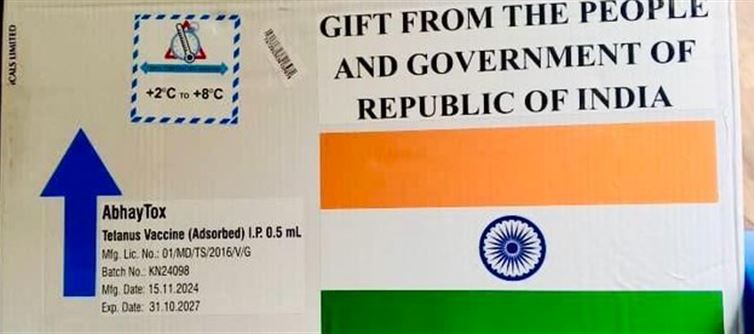
In a move that is as humanitarian as it is geopolitically strategic, india has donated 4.8 tons of critical vaccines to the people of Afghanistan—specifically targeting diseases like rabies, tetanus, hepatitis B, and influenza. This outreach, coordinated by the XP Division of India’s Ministry of External Affairs, is not merely a benevolent act; it is a calculated signal in South Asia's complex power matrix.
While the world debates the legitimacy of the Taliban regime, india has chosen a path of pragmatic engagement—sidestepping ideological posturing in favor of ground-level diplomacy. In doing so, New delhi is reasserting its presence in a country long considered a strategic backyard of Pakistan.
For pakistan, this move is not just diplomatically uncomfortable—it’s potentially disastrous. The Taliban’s growing receptiveness to indian overtures erodes Islamabad’s traditional leverage in Kabul. This alignment not only challenges Pakistan’s regional dominance but also ignites fears of strategic encirclement. If the Taliban continues to drift closer to india, Islamabad could find itself in the unenviable position of being flanked by hostile neighbors on both its eastern and western borders.
Pakistan's internal situation only compounds this external vulnerability. The country is reeling from a cocktail of economic instability, political disarray, and escalating sectarian violence. Inflation has crippled the common citizen, the army's political interventions have sapped civilian authority, and terror incidents in balochistan and khyber pakhtunkhwa are steadily rising. Against this backdrop, a foreign policy failure in afghanistan could easily become the last straw.
Any escalation, accidental or otherwise, between india and Pakistan—or even between pakistan and an increasingly India-friendly Taliban—could spiral into a regional crisis. And unlike previous decades, the world today is less forgiving of nuclear-armed brinkmanship.
This vaccine diplomacy, thus, is far more than a shipment of medical supplies. It is a soft-power gambit with hard-power consequences. It signals India's intent to shape the region not just through military might or economic investments, but through moral leadership and strategic timing. As pakistan flounders, india is slowly, carefully, redefining the rules of engagement.
And make no mistake—Islamabad is watching, perhaps helplessly, as the ground beneath its foreign policy doctrine begins to shift.




 click and follow Indiaherald WhatsApp channel
click and follow Indiaherald WhatsApp channel